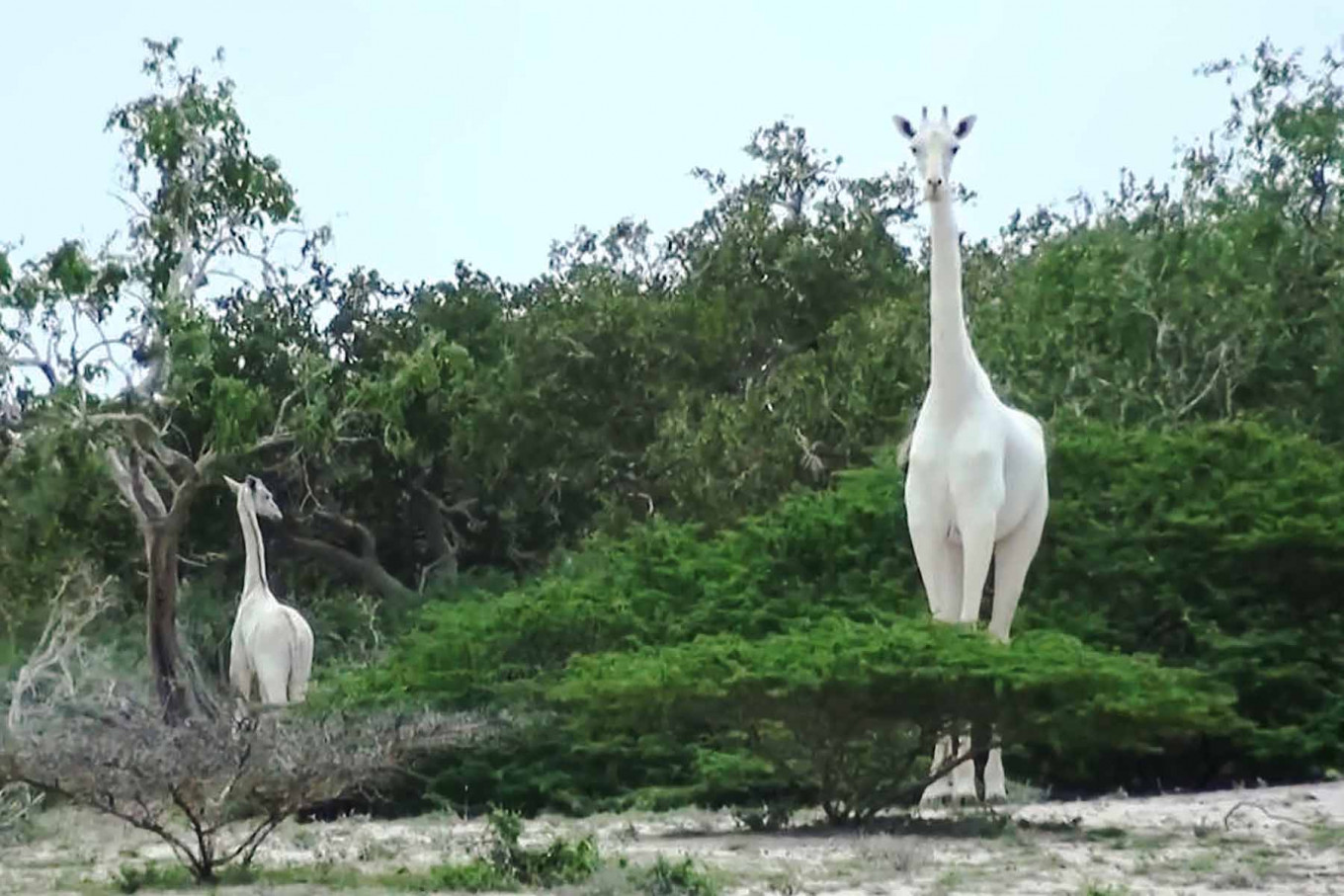Popular Reads
Top Results
Can't find what you're looking for?
View all search resultsPopular Reads
Top Results
Can't find what you're looking for?
View all search resultsRare white giraffes killed by poachers in Kenya: Conservationists
Kenya's only female white giraffe and her calf have been killed by poachers, in a major blow for the rare animals found nowhere else in the world.
Change text size
Gift Premium Articles
to Anyone
K
enya's only female white giraffe and her calf have been killed by poachers, conservationists said Tuesday, in a major blow for the rare animals found nowhere else in the world.
The bodies of the two giraffes were found "in a skeletal state after being killed by armed poachers" in Garissa in eastern Kenya, the Ishaqbini Hirola Community Conservancy said in a statement.
Their deaths leave just one remaining white giraffe alive -- a lone male, borne by the same slaughtered female, the conservancy said.
"We are the only community in the world who are custodians of the white giraffe," said Mohammed Ahmednoor, the manager of the conservancy.
Read also: Scientists hope to revive near-extinct northern white rhino in Kenya
"Its killing is a blow to tremendous steps taken by the community to conserve rare and unique species, and a wake up call for continued support to conservation efforts."
The white giraffe stirred huge interest in 2017 when she was first spotted on the conservancy and again when she birthed two calves, the latest in August last year.
Their alabaster color is caused not by albinism but a condition known as leucism, which means they continue to produce dark pigment in their soft tissue, giving them dark eyes.
Ahmednoor said their deaths, confirmed by rangers and community members, was a "sad day" and a major loss for researchers and tourism providers working in the remote corner of Kenya.











